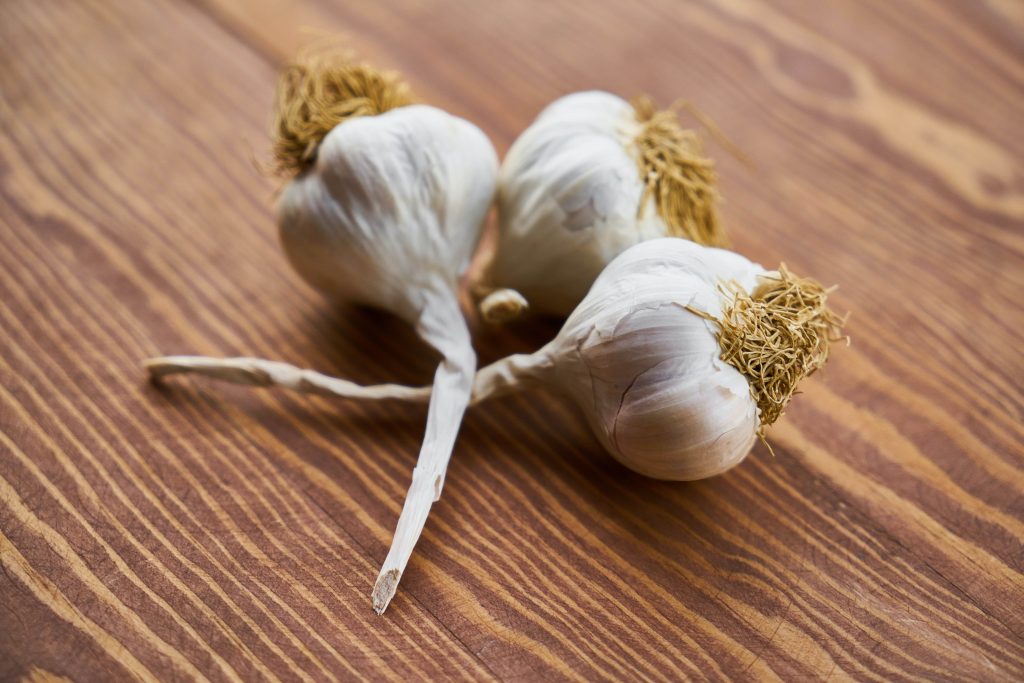
Garlic is very strong and special. It has various medicinal uses despite its tiny size and it has a long history all the way back as early as 1500 B.C. by the Egyptians for bug bites, heart problems, and headaches. Currently, in the modern era, garlic is loved by many people mainly for its taste which adds extra flavors to many dishes from Italian and Chinese cuisines.
Garlic can be eaten in many ways. One of the most common ways is the fresh clove of garlic chopped up and put in your pasta sauce. Moreover, we can also use garlic oil, aged garlic extract, and garlic powder tablets, which is garlic that has gone through a very long aging process to make a super-concentrated extract.
Garlic is a special vegetable that has various effects and not just good ones. Here are some special side effects of eating garlic that you might not know yet.
1. You Might Get Heartburn
Gastroesophageal Reflux Disease (GERD), is not a rare problem among adults which creates excess acid reflux in the esophagus. This can lead to feelings of pain, heartburn, and nausea.
You should lower the consumption of garlic if you have GERD or have occasional heartburns in general. The human body has a lower esophageal sphincter (LES), which is a set muscle that stops stomach acid from coming up the esophagus. A study from Primary Care says that these LES muscles can be weakened by garlic and may cause more heartburn.
2. Feeling Bloated
Garlic consists of a lot of fructans, which is a type of carbohydrate. Fructan can also be found in many other foods like onion, rye, cashew nuts, and watermelon. According to Ohio State University Wexner Medical Center, many citizens occasionally misdiagnose themselves as intolerant towards gluten, but they might in fact be intolerant toward fructans instead.
Fructan intolerance is quite similar to gluten intolerance in terms of its symptoms, which include stomach pain, cramps, and bloating. In the case where you experience these issues after consuming garlic, do be cautious.
Current Gastroenterology Reports say that people with possible fructan intolerance may want to consider a FODMAP diet that may help, but more research is still needed to confirm how useful the diet is. Garlic has also been proven that it can help with certain digestive problems.
3. It Might Lower Your Blood Pressure
Garlic actually has some properties that can reduce human blood pressure levels over time. According to Nutrition Journal, eating garlic or garlic products may have a beneficial effect on reducing blood pressure.
Dove Medical Press says that one of the main factors in reducing blood pressure is because garlic has polysulfides. Polysulfides help to control the “redox signaling pathways” in the human body, which are how the cells get instructions on the things that need protection or repair, which also includes regulating the blood pressure levels.
4. Improving Your Brain
Many studies have shown that garlic actually has a good effect on our brain’s function. Based on the Journal of Nutrition, garlic extract can reduce the risk of cognitive decline while aiding human memory retention.
Experimental and Therapeutic Medicine says that garlic extract has the potential to fend off specific heart diseases, cancers, and aid to prevent dementia due to its special antioxidant properties.

5. Stronger Immune System
Garlic can improve our immune system. Based on the Journal of Immunology Research, garlic can strengthen our immunity by activating several kinds of cells in our body that are connected to our immune system. The study says that more trials and research need to be conducted still, but the recent discoveries show some promise.
According to Clinical Nutrition, aged garlic extract can have a beneficial impact on our immunity also. This research provided 60 participants with a dosage of garlic extract every day and another set of 60 participants with a placebo. After a certain period, it was discovered that the group ingesting the extract had less severe cold symptoms and less time being ill.